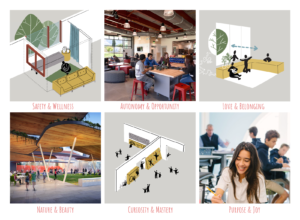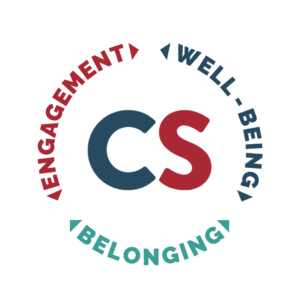Because Being a “Good School” Isn’t Good Enough

By Andrew Rubin
We educators instinctively tend to think that schools with big problems require major turnarounds, and that schools that operate smoothly and successfully – the typical “good school” – only need minor course corrections each year. The first part may be true. The second part isn’t.
I have the privilege of serving as School Leader of KIPP Academy Middle School in Houston, Texas. We serve over 400 students in grades 5 through 8. Founded in 1994, it was the first school in a KIPP charter school network that now has over 200 schools coast to coast.
In June of 2017, KIPP Academy – thanks to the amazing work an extremely dedicated group of staff members, both current and former – finished its 22nd year free of big problems. We had solid test scores and students with strong character; we had low teacher turnover and few parent concerns. Our kids live in zip codes where 10% of students graduate from college. 50% of our kids were getting college diplomas within six years.
But 50% college completion is still 30% below the rate of wealthy kids in our country. 50% college completion indicates gaps in skills and knowledge that most schools know are there but few want to acknowledge. And that number doesn’t even reflect another disheartening trend we saw in our kids heading off to high school – a lack of awareness of the world’s most pressing social, economic, and political issues, and the world’s most promising careers and opportunities.
So in August of 2017, we did more than a minor course correct. We implemented a new instructional model, anchored by three commitments:
- Making our curriculum more relevant – both by data-based differentiation and by making it more culturally, socially and politically responsive
- Pulling together our core classes into a continuum of thematic, cross-curricular units, from the first month of 5th grade to the last day of 8th grade
- Fostering genuine collaboration among teachers (beyond just sharing the joys and pains of working with various kids)
That kind of big-picture language can sometimes feel kind of empty, so I’ll fill it in with some specifics:
In previous years at KIPP Academy (and most other schools), the state standards were the limits and boundaries of curriculum. 8th graders in Texas learn about US History from 1607 to 1877 – and no more. Now, 8th graders begin the year with a cross-curricular study of the problems in our criminal justice system, culminating in a mock trial and evidence based recommendation to an official on how the system must be improved to be more equitable and just. Instead of memorizing Civil War facts, 5th graders research the lives of abolitionists and create a “wax museum” of abolitionist leaders.

In previous years, courses operated in isolation, requiring mental leaps from period to period at the expense of a million missed opportunities for brain-building connections. Now, students engage in five thematic units throughout the year. Our 7th graders are wrapping up a unit on the human body. In science, they learned about body systems. In social studies, they learned about medical advancements during the Civil War. In English, they analyzed historical fiction about the yellow fever epidemic in 1793. They visited Houston’s Health Museum and traveled to a local university to dissect pig hearts. They finished the unit with a white paper on a current public health issue

In previous years, teachers operated in silos. Science teachers only taught science. Math teachers closed the door and were expected to be superheroes each day. Now, our math teachers team teaches cohorts of students, changing rosters and modalities based on student need and content demands. All of our non-math teachers lead literature circles every single day designed to strengthen reading and academic speaking skills and deepen understandings of themes within the units. Everyone’s a critical thinking teacher, and every student project or standardized test score is the reflection of the true work of a team.
We’re trying to provide an experience that most kids on this planet can only get by paying a $30,000 tuition, or through their parents paying far more than that for houses in certain zones and certain neighborhoods. We know that we’re not on the vanguard of education reform. We are not the first established charter network to dabble with innovation. Our ideas and solutions are not the solutions. That’s why we want to connect with colleagues who are taking similar risks, and engage in dialogue that will help us continue to innovate and improve.
In that spirit, I hope you’ll visit our website – kippacademytx.org – to learn more about what we’re doing. It has more graphic explanations, videos, pictures of students in action, and information about the curriculum and beliefs driving this work. Our podcast – Middle School ReMix – includes real student voices and real-time reflections about what’s working and what’s not (spoiler alert: there’s plenty of both).
From the start, we’ve approached this work with the conviction that ideas and solutions shouldn’t be considered only in the context of a school’s current weaknesses or shortcomings. We need to think in terms of potential. All great teachers have had moments when they challenged good students to do something more than they’ve typically been asked to do, and then been awestruck by the results. Students and teachers deserve solutions that maximize these moments and that match their potential. We think we’ve found a few ways to do that. And we think we still need to do better. If you want to be a thought-partner, a critical friend, or a skeptical ally, I hope you’ll check us out and get in touch.
For more, see:
- Building the Future: Designing With Purpose
- League of Innovative Schools: A Network Creating the Future of Learning
- El Paso and New Tech Network: District Transformation in High Gear
Stay in-the-know with all things EdTech and innovations in learning by signing up to receive our weekly newsletter, Smart Update.





0 Comments
Leave a Comment
Your email address will not be published. All fields are required.